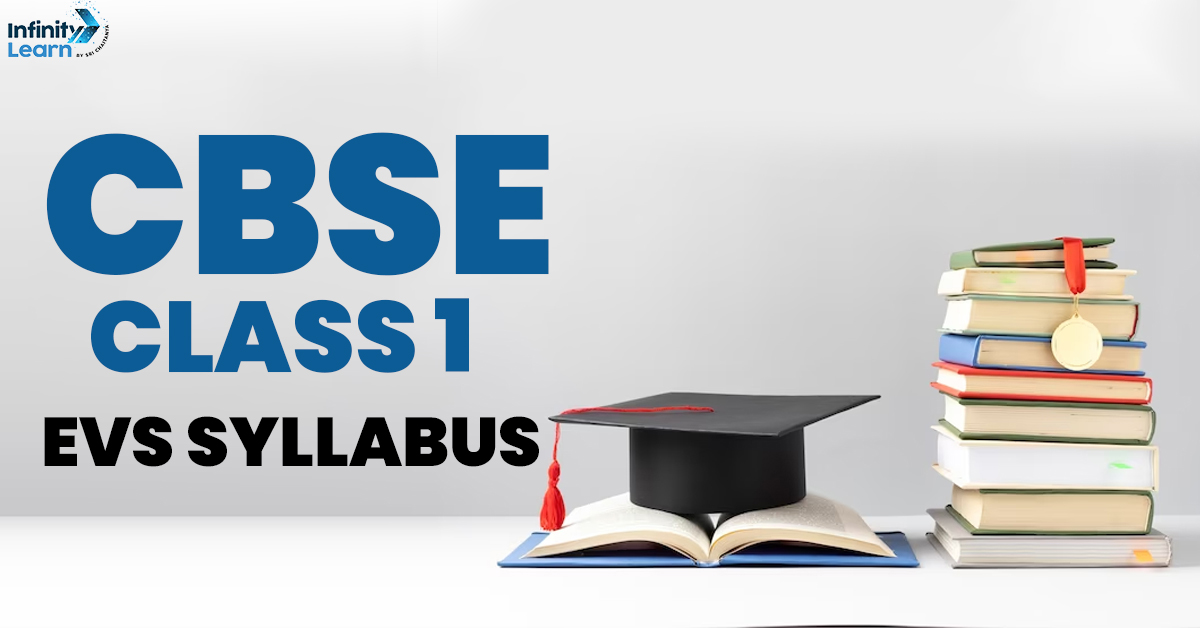Table of Contents
The Central Board of Secondary Education (CBSE) has recently updated the CBSE syllabus for class 1 EVS for the academic year 2024-25, and we are thrilled to share the details with you. Environmental Studies is a crucial subject that helps young learners understand the world around them and develop a sense of responsibility towards the environment. The updated syllabus is designed to provide a comprehensive and engaging learning experience for students, aligned with NCERT textbooks.
CBSE Class 1 EVS Syllabus Overview
The CBSE Class 1 EVS (Environmental Studies) syllabus teaches kids about their surroundings and how to appreciate them. It talks about things like family, friends, food, water, plants, and animals. The goal is to make kids curious and observant. The syllabus includes fun activities, stories, and easy projects to help kids learn. It wants to make them aware of nature and teach them to respect it. This course is like a starting point for kids to care about the environment and think like scientists.

Download the CBSE Syllabus Class 1 EVS PDF 2024-25
Looking for the latest CBSE Class 1 EVS syllabus for 2024-25? To make your preparation easier, we have curated a comprehensive CBSE Class 1 EVS PDF that you can download with just one click. This syllabus is designed to help students and parents understand the topics covered in Environmental Studies, ensuring a smooth and organized learning experience. Download the PDF now to get a detailed overview of the lessons and start your academic journey on the right track.
CBSE Syllabus for Class 1 EVS PDF
Class 1 EVS Syllabus All Chapters
- Chapter 1. Our Body
- Chapter 2. Care of Body Part
- Chapter 3. Our Food
- Chapter 4. Water
- Chapter 5. Our Clothes
- Chapter 6. Our House
- Chapter 7. My Family
- Chapter 8. My School
- Chapter 9. Safety Rule
- Chapter 10. Plant around Us
- Chapter 11. Animal around Us
- Chapter 12. Means of Transport
- Chapter 13. Useful Places
- Chapter 14. Know about the Day
- Chapter 15. Our Helpers
- Chapter 16. The Sky about Us
Syllabus for Class 1 Other Subjects
| CBSE Syllabus for Class 1 | |
| CBSE Class 1 English Syllabus | CBSE Class 1 Maths Syllabus |
| CBSE Class 1 Hindi Syllabus | |
Importance of EVS for Class 1 Students
Teaching Environmental Studies (EVS) to class 1 students is important because it starts to build their awareness about the environment. This awareness is key to developing good habits, caring for others, and understanding social responsibilities. EVS makes learning more interesting and relevant, which can help students do better in other subjects too. It teaches them how the environment affects our health and how to stay safe from diseases caused by environmental issues. Learning about EVS helps students realize the impact of their choices on the environment, encouraging them to act in ways that protect our planet. By including activities related to EVS in their lessons, students learn to use resources carefully and contribute to fighting climate change.
- NCERT Solutions for Class 1 English
- NCERT Solutions for Class 1 Maths
- NCERT Solutions for Class 1 Hindi
- NCERT Solutions for Class 1 EVS
FAQs on CBSE Syllabus for Class 1 EVS
What are the main subjects taught in Class 1 under the CBSE curriculum?
The primary focus in Class 1 is on developing foundational skills through a playful approach rather than formal subject divisions. However, some key areas include Language & Literacy (English or Hindi), Mathematics, Environmental Studies (EVS), General Knowledge, and Social Science concepts such as understanding family structures and community life.
What is the focus of EVS in Class 1 according to the CBSE syllabus?
The primary aim of EVS at this level is to introduce children to basic concepts regarding nature, animals, plants, cleanliness, waste management, and conservation through engaging activities and stories.
How many chapters are there in the CBSE Class 1 EVS textbook?
There are 16 chapters covering topics such as Our Body, Our Helpers, Plant around Us, My Family.
Is practical work included in the CBSE Class 1 EVS syllabus?
While not extensive laboratory experiments, hands-on activities and field trips are encouraged within the context of the lessons to make learning interactive and experiential.







